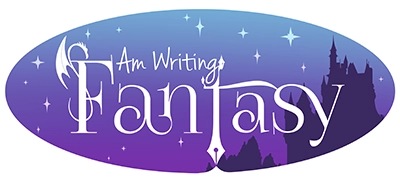I’m persnickety about creating character ‘voice.’ Though I write in third person limited, I endeavor to keep the ‘narrator’ of each chapter fixed in the knowledge and experience of the character whose POV the chapter is written from. If they can’t see, feel, hear, taste, or think it, it isn’t written.
The reasons for the narrow scope are many. I think that next to writing in first person, this method creates the strongest character connection for the reader; the novel is experienced through the character’s senses. Current novel writing pushes for the third person view, which I think has merit, especially when you switch between POVs like I tend to do on chapter breaks.* But it can lead to feeling disconnected from characters, which I don’t like.
This method also builds tension. With such a narrow window to experience events, the character is apt to misunderstand an occurrence or simply not know about a threat (seen through a different POV in a previous chapter!). If done correctly, the keys to potential future events are dangled out to the reader in snippets, leaving it up to them to piece together the puzzle of the story’s plot. Interactive reading that makes a brain hum! These are my favorite types of stories and the type I hope I am writing.
Of course, this style of writing has its challenges. Every so often (okay, like several times a chapter!) there is something that happens to an ‘offscreen’ character that simply has to be told. Somehow. I’ve spent hours thinking through how to make an event flow naturally into the story. How can the character whose POV in which I’m writing (I refuse to switch mid-chapter. That is my hangup. I’m not dealing with it.) experience something that they are not a part of? Should I switch whose POV the chapter is in? Can I add the occurrence to a different chapter? Dialogue relating what happened is cheating and kept to a minimum. The goal is that the biggest events are experienced in the character POV who is most affected (note: not necessarily the one causing the action. Emotional response trumps who has the sword in my view.)
Which finally brings me to the whole point of this post! Word choice and character POV – it makes a huge impact over the course of a novel. How a character experiences the world is unique to that character. As I wrote in a previous post on character development, life experiences and interests add up to what a character notices, reacts to, and describes. In that case I used the example that two of my characters in my epic fantasy trilogy the Rise of the Fifth Order are sailors. They have a good friend who is not. Their chapters are full of sailing terms: sheet, shroud, port, starboard. The non-sailing friend not only speaks but thinks in words like sail, rope, left, and right. Even when she isn’t speaking, I make sure I don’t mix up the terms. She simply would never use them.
With my new WIP, the military, dystopian, scifi smash-up Friends of my Enemy, I also realized that word choice relates the tone of a character’s mind. A character, Danielle le Marc, hates her father. But she also respects his authority. She is a little afraid of him really, though she won’t admit it. I never, ever, use the word ‘dad’ or ‘daddy’ in her chapters. She calls and thinks of her father as ‘father’ or ‘Renault.’ Maybe ‘bastard.’ Each purposeful word choice, though small, creates the character’s soul. You sense her fear and anxiety in the words used to describe her window of the world.
And just to really make the writing a challenge (like it isn’t usually!), other characters have a completely different view of her father. When the POV switches, the words change too. He becomes Count le Marc or Renault to friends (or the enemies who pretend to be friends). There is respect or familiarity in the tone of words, which changes the implication of the first name signifier. If the writing is really good, I should be able to pick a paragraph from Danielle’s POV and one from another and the reader should be able to guess with only the word choice whose POV it is from. Maybe. Its a goal anyway!
This is far from a new technique. Writers have used it for centuries, though I’ve more often heard it addressed to dialogue. Would someone uneducated use the word ‘obfuscated’? This is my take, maybe a little extreme, on an old technique. Do you consider word choice when writing?
*I’ve never done a post with a footnote before! But here it is. If you want to know why I like third person POV more than first is that it comes down to character likability. Specifically, the reader’s attachment or dislike of a character. I’ve read a few books in first person POV where I absolutely hated the main character. I didn’t like the decisions or reactions, nothing. The books like this I managed to struggle through was because I related to a secondary character well enough that I wanted to find out what happened.
Telling a story in multi-character third person POV gives the reader a chance to become invested in any of several characters. Or to dislike one but, hopefully, find a way to overlook their POV as it is just one of many.
And with that I’ll open this up for discussion… or another blog post if you would like?











You are so right about this!
And, I dare to admit publically, it is also my weakest point: having characters sounding the same.
But when most of them have the same background, and are all in the same class at school, it’s hard to differentiate.
Even in real life, people pick up wordings and behavior from people close to them.
Reverting to sentence some characters to slang or stuttering? I’m not that evil.
At most: pet-subjects…